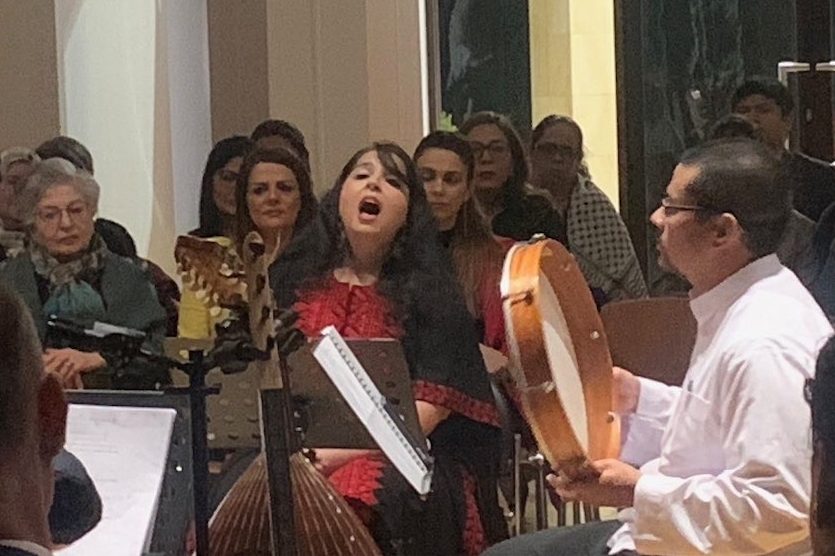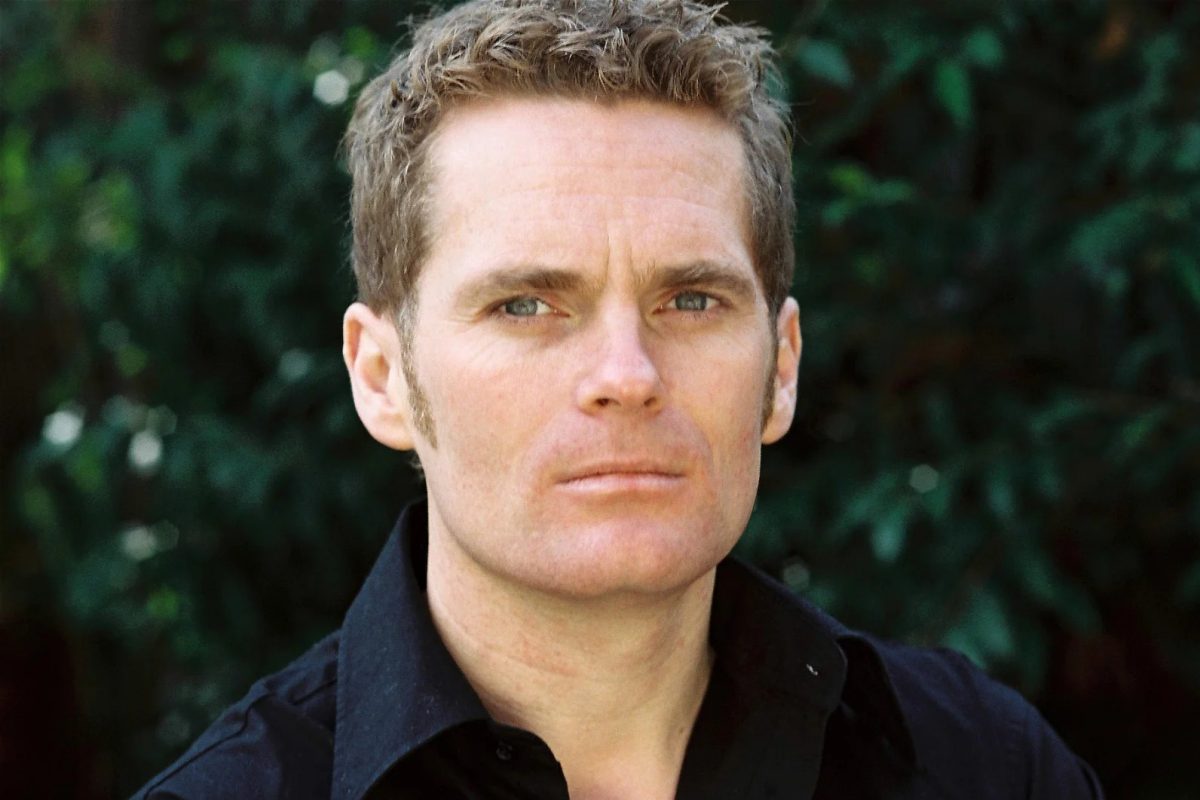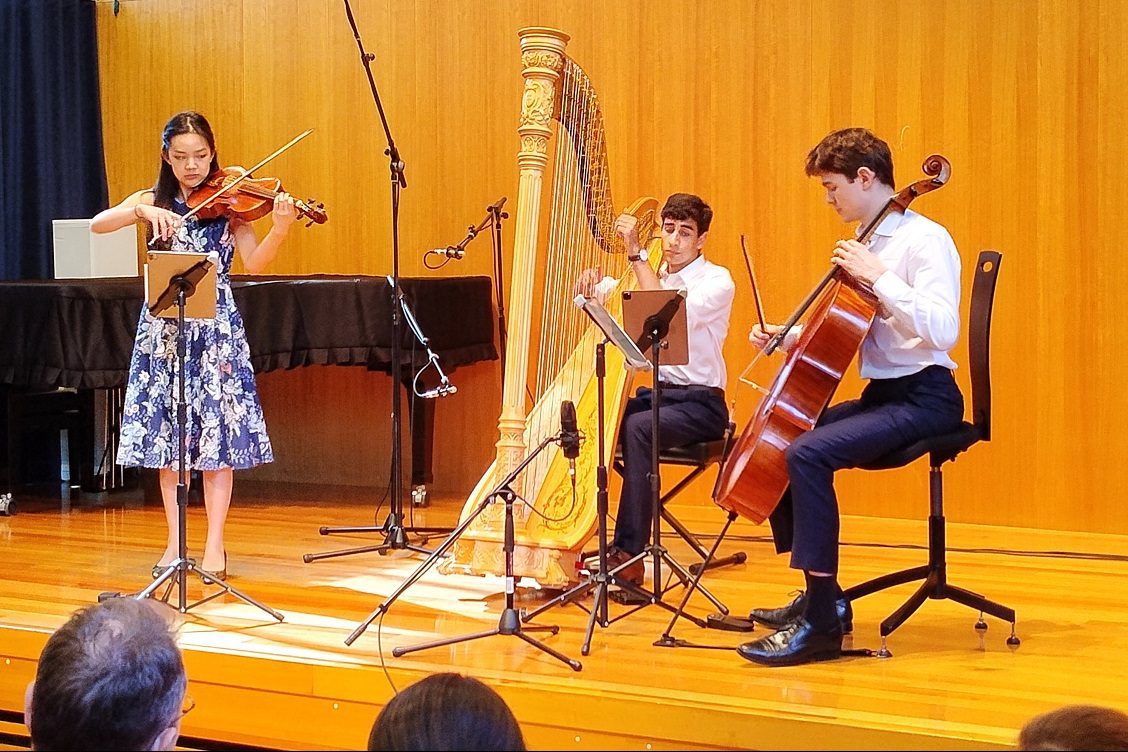
In the program notes to a cleverly conceived evening of music, Peelman says Homer’s story still serves as “a symbol of marital faithfulness and as a mystical power of attraction, the thing we call ‘home’” and an odyssey can be a physical, spiritual and emotional journey, too.
The scene for drama on the high seas was set with a deceptively gentle rendition by the antique music ensemble I Bassifondi – Simone Vallerotonda, Stefano Todarello and Gabriele Miracle – of “Sfessania” and “Passacaglia” by Claudio Monteverdi’s contemporary, G.G. Kapsberger.
Then without ado – Peelman prefers the music to speak for itself – the ensemble, augmented by string players, plunged into a lively concert presentation of the prologue and four scenes from Monteverdi’s 1640 opera “Il ritorno di Ulisse in patria”, “The return of Ulysses to his homeland”, presented in concert format.
In the prologue, countertenor Tobias Cole, bass Andrew Fysh, soprano Chloe Lankshear and treble Wynton Johnstone represented respectively the qualities that are likely to see human beings in deep water – Human Vanity, Time, Fortune and Amore.
High drama in Ithaca followed, as mezzo-soprano Kate Howden stole the show with “Penelope‘s lament”. Her rich, vibrant voice and her impassioned, full-blooded grip on the role suggested a considerable operatic future as she flung herself into the phrases of unfulfilled longing that Monteverdi made his own. Here she was ably supported by Canberra mezzo-soprano, AJ America.
In the second scene, Fysh conjured up the malevolent god of the deep, Neptune, as he plans to settle scores with the over-clever Ulysses.
The two final scenes saw Cole, tenor Dan Walker and Fysh take on the parts of Penelope’s suitors. The stage-canny Cole in particular seemed to enjoy responding to Penelope/Howden’s withering glares with light amorous banter.
Out on the Mediterranean, things were not going well for a chorus of Phaecian sailors, but then, suddenly, Peelman switched back to Ithaca to cut the story off in Act II scene 5 with “Non voglio amar,” a jolly effort to cheer Penelope up that involved the entire ensemble and The Luminescence Chamber Singers.
The audience were panting for more, but we are unlikely to see a full production of this great musical work any time soon, for as Peelman says, it would cost a fortune to stage properly “with all the bells and whistles”.
Having set sail on the high seas of music, Peelman entered choppier waters in the second half with three contemporary compositions bearing on the question of forced journeying, seen in the ever-mounting problem of asylum seekers.
Sydney composer Alex Pozniak’s work “In Search of Asylum for piano quartet,” evoked a grim sense of violence and despair. Peelman at the piano used the piano as a percussive instrument, underscoring the growling, chopping, whining sounds of the strings from Veronique Serret on violin, James Wannan on viola Christopher Pidcock on cello. Wannan stirred up such a storm that he was left with very few strings to his bow – quite literally. A young soldier sitting next to me was stunned by this work.
Composer Mary Finisterer’s mellow but mindful work “Angelus for clarinet trio” followed, in which Magdalenna Krstevska on clarinet, Rachael Shipard on piano and Stephanie Arnold first created a musical litany of prayer, later swelling then subsiding to a quiet conclusion. This artful piece of programming gave the audience pause for reflection before the final work of the evening.
Peelman may be drawing a long bow when he likens the plight of asylum seekers to the ever-hopeful journeying of Ulysses, but he does so on the basis that the concept of “return,” the theme of this year’s festival, also encompasses the possibility that you might not get there.
Robert Davidson and Stephanie Arnold’s extraordinary 2016 composition “Across the Water” was performed by Arnold, who had personally interviewed boat people about their experiences. Words, such as ‘jail,’ ‘big jail’ and ‘real jail’ were iterated and reiterated in the real, often hoarse voices of the asylum-seekers, becoming music. Arnold sometimes matched and sometimes cut into the asylum seekers’ pleas to be treated as human beings, with respect.
As they responded to the twists and turn in the words, amplified and thrown up on the screen for all to hear and see, audience members sat spellbound. It was a fitting conclusion to a riveting evening, when the music at least was brought home.
Who can be trusted?
In a world of spin and confusion, there’s never been a more important time to support independent journalism in Canberra.
If you trust our work online and want to enforce the power of independent voices, I invite you to make a small contribution.
Every dollar of support is invested back into our journalism to help keep citynews.com.au strong and free.
Thank you,
Ian Meikle, editor




Leave a Reply